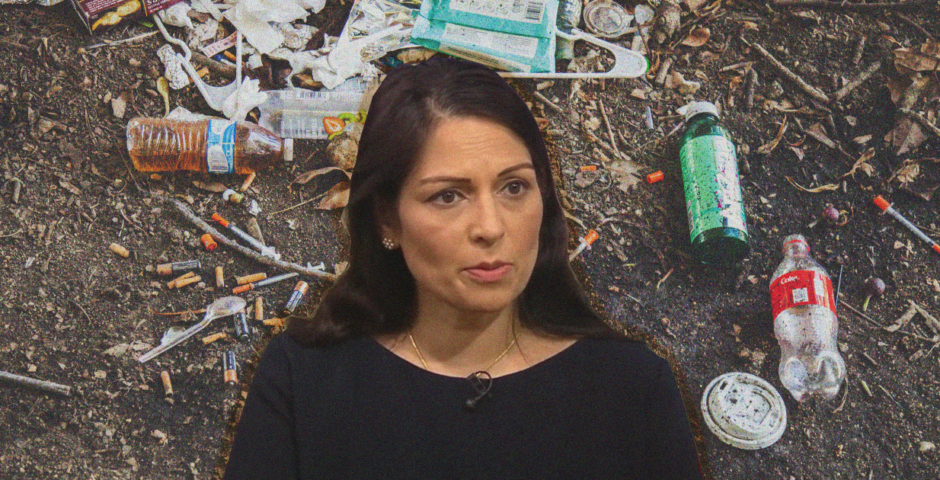
Priti Patel says student drug use is ‘directly leading’ to an increase in violent crime and people dying
Shock! Students take the blame once again
Priti Patel has singled out students, once again, as part of the government’s new drugs clampdown initiative, claiming that their actions were “directly leading” to an increase in violent crime and people dying.
The home secretary promised sanctions for students who she claimed “ignorantly” take drugs with “no thought” to the criminality they were supporting.
Yesterday, the government announced a 10-year-strategy to cut down drug use in the UK, particularly among middle-class drug users. As punishment, “lifestyle” users of class A drugs could see their UK passport and driving licence taken away.
The strategy said their next step would include testing messaging, initially aimed at students, to be rolled out in autumn 2022.
It said: “The trial of messaging in universities will be delivered alongside increased capacity to deliver these interventions and ensure access to treatment services for those with an appropriate level of need.”
Writing in yesterday’s Daily Mail, Patel singled out students in her vow to impose “tougher sanctions” for those who break the law.
She said: “This means tougher penalties for those so-called ‘recreational’ users, such as students who ignorantly take drugs with no thought to the criminality they are supporting and those they are exploiting.
“Their actions are directly leading to an increase in violent crime and people dying – but they pay no price. That will change.
“We will bring down the harshest possible legal sanctions and consequences for these users, including criminal sanctions, fines, curfews, compulsory drug- awareness courses and the removal of their passports.”

However, the National Union of Students [NUS] said the government was playing a “dangerous game” with people’s citizenship and safety.
Hillary Gyebi-Ababio, the NUS’ vice president for higher education, said the policy focused on “ineffective and often unjust” carceral responses which can disproportionately impact black, disabled and LGBT+ students.
She added: “We cannot continue to take purely punitive measures when it comes to drug use, as this can discourage students from reaching out for harm reduction advice, support from staff or the contacting of emergency services.
“We should be educating students on reducing drug-related harm and equipping them with the information to make informed choices.
“For many years, universities, colleges and students’ unions have run campaigns on safer sex and responsible alcohol consumption, and we should be building on these approaches, which have shown positive measurable results, to ensure students are educated and supported on the issue of drug use”.
In the foreword to the strategy, Boris Johnson wrote: “There will be no implicit tolerance of so-called recreational drug users. We cannot allow the impression to be given that occasional drug use is acceptable. It isn’t. So there will be new penalties for drug users.”
The prime minister has previously spoken about being offered drugs as a student, telling the BBC’s Have I Got News For You: “I think I was once given cocaine, but I sneezed and so it did not go up my nose. In fact, I may have been doing icing sugar.”
Related stories recommended by this writer:
• New rules mean middle-class drug users could lose their UK passport
• 16,000 students took our drugs survey. Find out how and what they’re taking this term
• Coke, pills, ket: The most popular drugs at each university in the UK





















